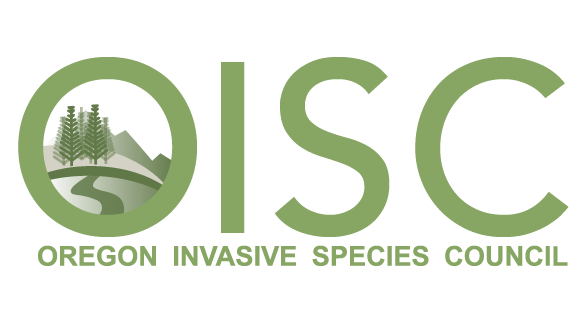Chinese mitten crab found in Willamette River near Portland; ODFW asks for help to identify invasive species in Oregon’s waters
/SALEM, Ore. – A Chinese mitten crab, a prohibited species in Oregon, was found in the Willamette River near the Sellwood Bridge and reported to ODFW on Nov. 17.
The crab was spotted in shallow water and captured by hand. It was alive and not released back into the river. Mitten crab is a non-native crab species that lives its adult life in freshwater and migrates to brackish water to breed, unlike Oregon's native crab species that live in the ocean, bays, and estuaries.
This recent confirmation is concerning for ODFW as another Chinese mitten crab was found in Oregon waters in April 2025 in a different location – marking the second confirmation of this invasive species in Oregon.
ODFW biologists are working with the U.S. Fish and Wildlife Service, Portland State's Center for Lakes and Reservoirs and the Oregon Invasive Species Council to determine if other mitten crabs are in the Willamette River.
Detection methods include setting up artificial habitats to attract mitten crabs and collecting water and substrate samples to look for environmental genetic markers specific to Chinese mitten crab. PSU initiated a monitoring program for mitten crab in the Columbia and Willamette rivers by conducting shoreline walks and looking for signs of mitten crab including molted carapaces (top shell).
It is unlawful to possess mitten crabs in Oregon, so they are unlawful to sell in Oregon. There is a risk of mitten crabs being illegally imported and sold in the food trade and then released alive into Oregon waters. The agency asks the public to report any suspected unlawful sales.
It is important to correctly identify this species and report it to 1-866-INVADER or report it online via the Oregon Invasive Species reporting hotline form. Photographs can be submitted through the hotline and people are encouraged to do so as crab identification can be difficult and native crabs have been misidentified as invasive.
Chinese mitten crabs are known to burrow into dikes, levees or stream banks which can increase erosion and damage flood control and water supply systems. These medium-sized crabs, about 3-inches wide, prey on native species, consume fish eggs and compete for food, potentially impacting native fish and crayfish populations.
Mitten crabs vary in color from brownish orange to greenish brown and are named for their hairy mitten-like features located on the outside of their claws. They have a notch between their eyes and four spines on each side of the carapace.
When identifying non-native mitten crabs, it is important to note that the hairy shore crab, a native species to Oregon, also have a patch of hair on the inside of their claws.
Photo submitted to ODFW from most recent invasive species report (Nov. 17, 2025).
Visual identification guide for crabs in Oregon – be sure to not harm native species.
Link to Chinese mitten crab identification illustration
ODFW Contact
Adam Baylor, 503-930-7116, adam.c.baylor@odfw.oregon.gov
